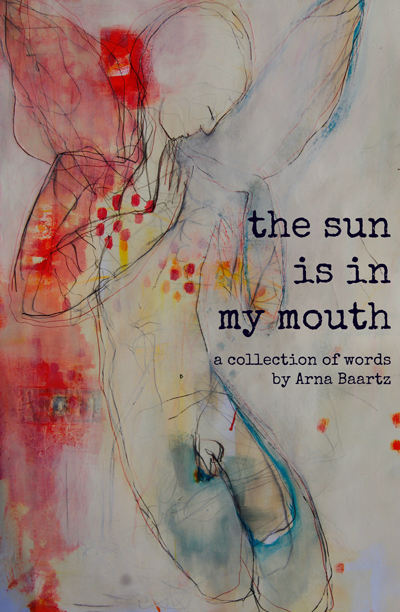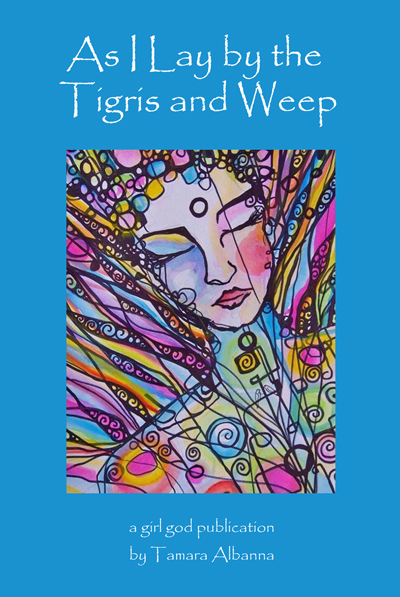Poetry Chapbooks |
|---|
"Tamara Albanna reveals many faces in her collection of "poetry and musings, As I Lay by the Tigris and Weep. Her untitled and deceptively simple pieces, none more than a page long, describe a fierce woman who calls for nothing less than a world-wide revolution against the misogyny of "old men in their robes/ so terrified of little girls who bleed/ paralyzed at the thought of all that power. . ./ They must suppress her from the cradle to the grave/ because if she realizes her power/ theirs will be no more." Albanna reminds us-and herself-that she is: descended from the "Priestesses of Sumer/ A land they call, 'The Cradle of Civilization,'/ a time when Goddess reigned/ and women honored as her incarnation on Earth/ Today, this land is drowning in the blood of/ innocents-all because we have forgotten Her." Slowly she has discovered and forged the inner strength necessary both to survive and to effect change. In one of the "musings " mentioned in the book's title, Albanna relates: "To survive my childhood, I learned how to weave words, step in and out of different realities, different worlds, anything to escape the cruelty of my present situation. I look back and realize the power I had." In some pieces, Albama apostrophizes the Beloved, reminiscent of the great Persian mystic poet known as Rumi. Filled with ecstatic adoration, Rumi's unidentified "Beloved" represented, we are told, his idea of God. Similarly, the identity of Albama's "Beloved" is ambiguous, but perhaps she addresses those to whom she dedicates her book, "To the Goddess, my Motherland, and women and girls all over Mother Earth." What is not ambiguous is that Albanna calls for us to abjure subordination, suppression, and silence originating in fear and hatred based on identities assigned us at birth, and incites us to rebel and own our strength and beauty." -Donna Snyder, author of The Tongue Has its Secrets |


